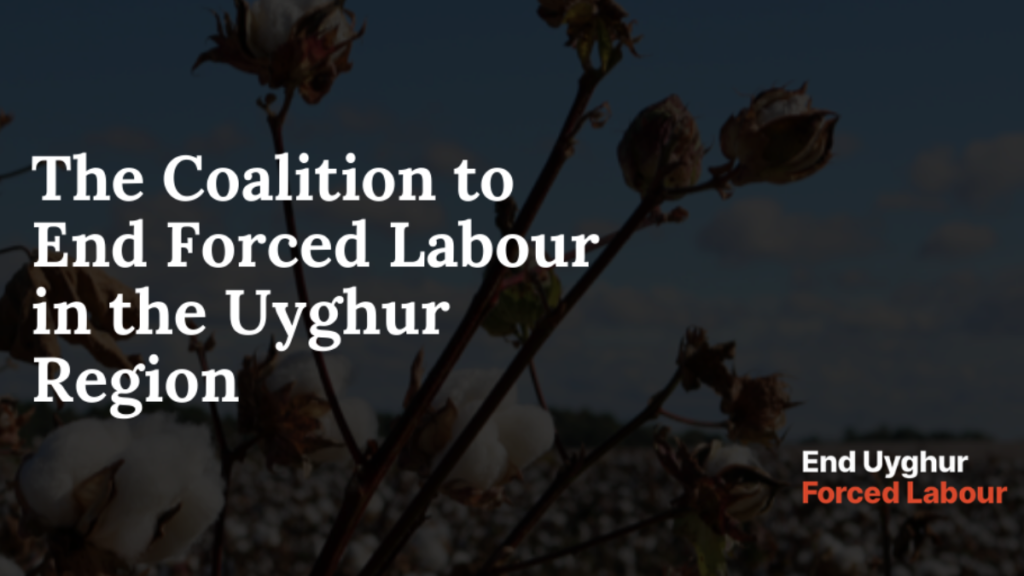Coalition Calls on Industry to Cease Audits in Uyghur Region

October 3, 2024
[Below is a statement by the Coalition to End Forced Labour in the Uyghur Region, for which the Uyghur Human Rights Project is a Steering Committee Member]
Anyone conducting social audits in the Xinjiang Uyghur Autonomous Region (Uyghur Region) should cease doing so immediately. Social audits and certification schemes cannot credibly determine the presence or absence of state-imposed forced labour within the context of egregious human rights abuses that may amount to crimes against humanity in the Region.
In June 2023, Volkswagen announced an audit of SAIC-Volkswagen (Xinjiang) Automotive Co., Ltd., a plant operated by a subsidiary of the joint venture between Chinese state-owned SAIC Motor Corp. Ltd. and Volkswagen Group. Uyghur and human rights groups immediately condemned the announcement. In December 2023, Volkswagen announced its audit found no indications of forced labour. Despite concerns of senior staff at the consultancy that facilitated the audit, and the serious and inherent flaws of the audit, the release of the positive results led MSCI, a financial rating agency, to remove a “red flag” rating for the company’s stock.
On September 19, 2024, the Financial Times reported that the controversial audit, carried out by Löning-Human Rights & Responsible Business GmbH, a German consultancy firm, and Guangdong Liangma Law, a Chinese law firm, failed to meet international standards. According to the confidential audit report leaked to the advocacy group Campaign for Uyghurs, interviews with workers at the plant were livestreamed to the law firm’s headquarters in Shenzhen, jeopardising confidentiality. Only managers were asked about forced labour, while workers were asked questions that could only be answered with yes, no, or predetermined responses.
The Coalition to End Forced Labour in the Uyghur Region has consistently maintained that audits cannot be credibly carried out in the Uyghur Region due to the unsurmountable risks to auditors and workers. Uyghur and other Turkic and Muslim-majority peoples face significant risk to their safety when speaking with auditors. Worker interviews, which are essential to the methodology of any labour or human rights investigation, cannot generate reliable information in a circumstance where workers cannot speak candidly to factory auditors about forced labour or other human rights issues without placing themselves and their families at risk of extreme retaliation, such as detention.
Further, the Chinese government is systematically curtailing the independence of international audit firms. Auditors have complained of extreme surveillance, including the use of facial recognition and tracking of physical and digital movements and have reportedly been detained, harassed, threatened, or stopped at the airport. Multiple audit firms ceased operating in the Uyghur Region years ago due to the repressive environment and fear of reprisal for both auditors and workers. Independent audits in the Uyghur Region are impossible as they cannot be conducted without government oversight.
The absurd audit commissioned by Volkswagen is a prime example of the practical impossibility of carrying out social audits and on-the-ground due diligence in the Uyghur Region. This should serve as a warning to companies and auditors that similar attempts will be discredited as was also made clear in a statement on the failure of social audits to identify state-imposed forced labour signed by over 60 organisations. The only responsible course of action for private sector actors is to map and trace their entire supply chains to identify links to the Uyghur Region, fully disengage from the Uyghur Region, and address any links to Uyghur forced labour outside of the Region.
All auditing firms and certification bodies must heed calls by civil society organisations to immediately stop conducting labour audits in the Uyghur Region and to urge companies to end all operations and supply chain links to the Uyghur Region to prevent exposure to state-imposed forced labour.
